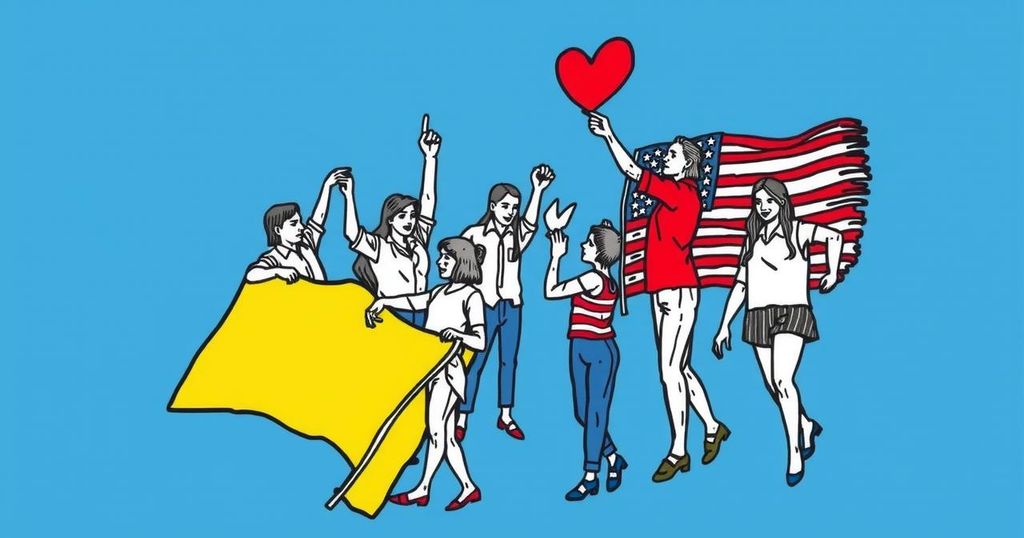Uruguay’s Democratic Model: Lessons in Civility for Brazil and the USA
Uruguay’s electoral campaign exemplifies civility absent of extremism, contrasting sharply with Brazil and the United States. Both the winning and losing candidates are pragmatic moderates, and the electoral process was characterized by efficiency and transparency. Uruguay showcases low poverty and inequality rates while advocating for progressive social policies. José Mujica’s principles of simplicity and forgiveness continue to influence the new administration, exemplifying a political culture focused on dialogue over division.
Uruguay stands in sharp contrast to the more tumultuous political climates of Brazil and the United States, offering a model for democratic conduct characterized by civility and moderation. The recent electoral campaign in Uruguay unfolded without the usual harsh polarization, hate rhetoric, and misinformation prevalent in larger democracies. With an efficient, transparent process and quick results, both victor and vanquished embraced a moderate approach, indicative of a mature political landscape.
Since its return to democracy in 1985, Uruguay has oscillated between centre-right and centre-left leadership, with recent elections marking another shift. President-elect Orsi, a former history teacher, represents a blend of progressive domestic policies and diplomatic solidarity with leftist governments in the region. His predecessors have historically swayed between conservative and progressive principles, with promises to uphold social welfare while promoting private sector growth.
Orsi’s perspective on leadership is inspired by former President José Mujica, known for his ascetic lifestyle and emphasis on simplicity. Mujica’s presidency, marked by forgiveness toward his government’s oppressors, showcased a pragmatic leftist approach, rejecting extreme ideologies and advocating for a rational, inclusive left. His notable declaration challenged rigid ideological divides: “I’ll shout it if they want: Down with isms! Up with a left that is capable of thinking outside the box!”
Despite its modest size, Uruguay maintains a notably low rate of poverty and inequality. Its economy is bolstered by its membership in the Mercosur trade bloc and by attracting international investment, as evidenced by the establishment of TCS’s Latin American headquarters in Uruguay. The nation is also recognized for progressive social policies, including the legalization of same-sex marriage and cannabis, leading the way in rights advancements in South America.
Despite being a small nation of just 3.6 million, Uruguay illustrates that political engagement can surpass the divisiveness that afflicts larger nations. Its example signifies that stability and civility in governance are attainable, serving as a vital lesson for Brazil and the United States in times of rising political extremism and division.
Moving forward, the Uruguayan model reminds us that political culture can shift away from hostility and aggression toward a more productive dialogue-focused approach. With its rich democratic history and commitment to equality, Uruguay has established a pathway for others to emulate, steering clear of the far-right populism witnessed elsewhere.
In summary, Uruguay may be small in population and economy, yet it offers an extensive lesson in democratic values, moderation, and social progression that stands in stark contrast to the current political landscapes of Brazil and the United States.
Uruguay’s political history has oscillated between center-right and center-left parties since the restoration of democracy in 1985, creating a stable environment less influenced by extremist rhetoric. This stability has led to a transparent electoral system with civil discourse, which can serve as a blueprint for larger democracies that currently grapple with polarization and extremism. The governance style of significant figures, such as former President José Mujica, shapes the state’s current political climate, emphasizing simplicity and pragmatic leftism, aligning with progressive social policies.
Uruguay’s political landscape underscores the importance of civility and moderation in governance, setting a commendable example for larger democracies facing challenges from far-right extremism. By maintaining a transparent electoral process and prioritizing social welfare, the nation demonstrates that positive political culture is achievable. As Brazil and the United States navigate tumultuous political waters, learning from Uruguay’s approach may prove critical in fostering a more inclusive and respectful political environment.
Original Source: www.theweek.in




Post Comment